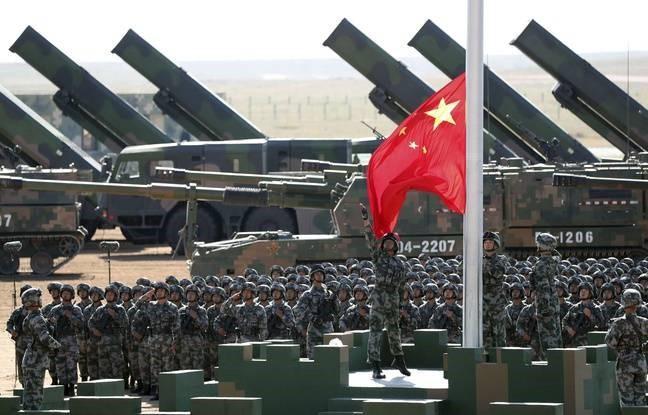Africa Atlantic Axis (AAA program)
Africa Atlantic Axis (AAA) is the program for the development of African industry from countries located on the Atlantic coast or with close port access such as the DR Congo although rather located in Central Africa. This geographical location would facilitate trade with the two major consumer markets that are the EU and the USA. Financed as part of the development aid for Africa by international institutions and countries  wishing to contribute, the modern and secure business parks will host the production tools of major European, American or non-Western brands and often local SMEs. International and open to global companies and investors. The plan is not specifically French, European, American or African. Non-condescending, it will meet the expectations of ambitious and impatient young African generations. About twenty African countries would be initially concerned, but many companies and job seekers from other countries would see opportunities offered to them within a dense network of companies. This process of industrial integration would eventually enable the creation of ecosystems. This level of activity would enable African states to equip themselves with vital infrastructure and see their standard of living rise considerably. By offering prospects for the future, the project would also promote regional stability. Africa Atlantic Axis (AAA) proposes a plan for the creation of sectoral activity parks (household appliances, computers, furniture, sports, toys, textile-clothing etc ...) which would be likely to significantly accelerate the economic development of the African continent while preserving it from the rampant colonization of China and its imports. Initially generalist, the clusters would then specialize at the pace of development. The zones of activity would meet precise sanitary and environmental requirements. Assistance with local recruitment and training as well as legal, tax and administrative assistance would facilitate the installation of foreign companies.Thus the often Western brands could transfer more serenely the previously Chinese manufacture. Many African engineers, often expatriates but wishing for the development of Africa, would enthusiastically welcome proposals for the creation of subcontracting joint ventures. These would collaborate with international brands within groupings that would become complete and efficient industrial ecosystems while initiating more African industrial independence. For example, why continue to manufacture most of our smartphones, tablets, computers or other technological products in China, if we consider that another way of managing the extraction and transformation of the rare earths needed to manufacture them is possible. China currently has a monopoly but nevertheless holds only 30% of the reserves under its soil.
wishing to contribute, the modern and secure business parks will host the production tools of major European, American or non-Western brands and often local SMEs. International and open to global companies and investors. The plan is not specifically French, European, American or African. Non-condescending, it will meet the expectations of ambitious and impatient young African generations. About twenty African countries would be initially concerned, but many companies and job seekers from other countries would see opportunities offered to them within a dense network of companies. This process of industrial integration would eventually enable the creation of ecosystems. This level of activity would enable African states to equip themselves with vital infrastructure and see their standard of living rise considerably. By offering prospects for the future, the project would also promote regional stability. Africa Atlantic Axis (AAA) proposes a plan for the creation of sectoral activity parks (household appliances, computers, furniture, sports, toys, textile-clothing etc ...) which would be likely to significantly accelerate the economic development of the African continent while preserving it from the rampant colonization of China and its imports. Initially generalist, the clusters would then specialize at the pace of development. The zones of activity would meet precise sanitary and environmental requirements. Assistance with local recruitment and training as well as legal, tax and administrative assistance would facilitate the installation of foreign companies.Thus the often Western brands could transfer more serenely the previously Chinese manufacture. Many African engineers, often expatriates but wishing for the development of Africa, would enthusiastically welcome proposals for the creation of subcontracting joint ventures. These would collaborate with international brands within groupings that would become complete and efficient industrial ecosystems while initiating more African industrial independence. For example, why continue to manufacture most of our smartphones, tablets, computers or other technological products in China, if we consider that another way of managing the extraction and transformation of the rare earths needed to manufacture them is possible. China currently has a monopoly but nevertheless holds only 30% of the reserves under its soil.
The plan requires a provision of 10/15 billion euros to finance the main and peripheral infrastructures of the first 3 to 5 zones that would house the production of large global companies or smaller companies. These amounts, which would be allocated by international institutions for the development of Africa, would include the financing of the construction of essential road, rail, airport or port accesses, energy supply, telecommunications networks, road works and waste management, living areas, security means, housing, schools, medical centers, shops, etc... 1 or 2 new clusters of varying sizes could be created every 2 or 3 years. Many Western consumers want more products to be manufactured in their respective countries but do not want to spend much more. Also, given the generally unsuitable Western production costs for competition dictated by globalization, the millions of consumer goods manufacturing jobs that have gone to China will not come back to the EU or the USA. It is preferable, based on equalization and cost-sharing mechanisms, to preserve and keep companies with even a small number of industrial jobs in Europe and the USA rather than see what remains of the manufacturing industry disappear in these countries. Moreover, the implementation of industrial development clusters would require the use of a multitude of European and American service companies that would accompany the economic change. The latter would offer many highly qualified jobs. Thus the program based on the efficiency of economic mechanisms and offering promising prospects for growth, could convince sectors of activity to leave the ground of a Chinese dictatorship that threatens the world, devotes its capital to predation and militarization to the detriment of the poorest Chinese. The objective is obviously not to transform Africa into a new workshop of the world but above all to promote the restoration or constitution of new global economic balances that will contribute to peace and democracy. Environmentalists opposed to nuclear or coal-fired power plants could only recognize the interest of an industrial model concerned with the environment, in which hydroelectric power would provide most of its electricity needs. Many companies are now thinking about reducing their production in China, which has a very negative image, and would accept to take up, with Africa, this pragmatic challenge of modernization which would also help to repair the unprecedented economic damage in the world. Sept. 28, 2020 by Francis Journot
manufactured in their respective countries but do not want to spend much more. Also, given the generally unsuitable Western production costs for competition dictated by globalization, the millions of consumer goods manufacturing jobs that have gone to China will not come back to the EU or the USA. It is preferable, based on equalization and cost-sharing mechanisms, to preserve and keep companies with even a small number of industrial jobs in Europe and the USA rather than see what remains of the manufacturing industry disappear in these countries. Moreover, the implementation of industrial development clusters would require the use of a multitude of European and American service companies that would accompany the economic change. The latter would offer many highly qualified jobs. Thus the program based on the efficiency of economic mechanisms and offering promising prospects for growth, could convince sectors of activity to leave the ground of a Chinese dictatorship that threatens the world, devotes its capital to predation and militarization to the detriment of the poorest Chinese. The objective is obviously not to transform Africa into a new workshop of the world but above all to promote the restoration or constitution of new global economic balances that will contribute to peace and democracy. Environmentalists opposed to nuclear or coal-fired power plants could only recognize the interest of an industrial model concerned with the environment, in which hydroelectric power would provide most of its electricity needs. Many companies are now thinking about reducing their production in China, which has a very negative image, and would accept to take up, with Africa, this pragmatic challenge of modernization which would also help to repair the unprecedented economic damage in the world. Sept. 28, 2020 by Francis Journot
The creation of a homogeneous economic community of sub-Saharan African states facing the same demographic and malnutrition problems could prove relevant. More economically operational and executive than political and administrative, this community must aim to free itself from ideologies in order to better reconcile the imperatives of environmental preservation and the industrialization that is essential to modernize the region and reduce extreme poverty. Published the Wednesday, March 26, 2025
United States of Sub-Saharan Africa (USSA) & Program for the Industrialization of Sub-Saharan Africa.
 A 1,000 billion euro industrialization program over 20 years is needed to avoid human chaos in sub-Saharan Africa
A 1,000 billion euro industrialization program over 20 years is needed to avoid human chaos in sub-Saharan Africa
According to the World Bank, current policies will create "at most 100 million new jobs over the next 20 years, rather than the 450 million that Africa will need", while the sub-Saharan population could reach 2 billion by 2050 and double by 2100. If we are to avoid the worst, we need a program backed by private funds commensurate with the challenge.
How an industrialization program worth 1,000 billion euros over 20 years could be implemented
After several years of economic and financial research, and some twenty articles published in the press, the 20-year program for the industrialization of Sub-Saharan Africa seems to have established itself as the main credible proposal for the development of Sub-Saharan Africa, in the face of the failed Official Development Assistance (ODA) policy or the AU's Agenda 2063, which has made little progress. The program would be broken down as follows:
300 billion euros to create 100 modern, scalable and secure industrial and commercial zones of varying sizes, spread across some 40 countries, with foreign and local companies paying rents and services to the management fund. These ecosystems will be complemented by agricultural activities within a perimeter of just a few dozen kilometers, to create self-sufficient, energy-efficient living spaces.
400 billion euros for loans to local and foreign companies and equity stakes in high-potential projects. However, we will need to back the fund with external investment and compensation mechanisms to ensure profitability and stability.
300 billion euros to build 100 ecological new towns, close to 100 industrial and commercial zones. Eventually, they will be home to 150/200 million inhabitants, including families of workers who will benefit from energy, transport, education, health and other infrastructures.
A dedicated investment fund that complies with strict and prudent management rules
Official development assistance (ODA) donor countries, as well as institutional and private investors, could consider the potential efficiency of smart capitalism and top up the fund dedicated to the Program for the Industrialization of Sub-Saharan Africa in less than 20 years.
This new way of contributing to development would provide a return on the funds invested each year, and its financial mechanism would encourage rapid growth in the sub-Saharan region. Admittedly, the return on capital would not rival that of the best-performing financial products, but it would nonetheless appeal to investors anxious to display CSR and inclusivity values, while safeguarding their investments in a fund with serious and prudent management.
The creation of the new industrial or agricultural production tools financed, would hardly be anarchic and would be part of a supervised process. In this way, production that forms complete local ecosystems or is integrated into global value chains will multiply the positive effects of each euro invested. To generate sufficient profit margins that will contribute to the fund's viability, we will often use a vertical integration economic model from production to marketing, which will make better use of local resources. In some cases, we will need to integrate external investments while we wait for the program to produce its effects.
It is crucial for sub-Saharan Africa to support this project, which is in the general interest of its populations.
Sub-Saharan Africa must mobilize in favor of this project, which is in the general interest of its people. It could prove to be a real challenge, not only in terms of jobs, but also in terms of the supply of necessary consumer goods. Our proposals are welcomed by a growing number of sub-Saharans and members of the diaspora. A plebiscite for the program and the involvement of African entrepreneurs will convince more countries, institutional and private investors, as well as major international companies, to join in this ambitious and noble challenge for sub-Saharan Africa.
Consultant and entrepreneur, Francis Journot directs the program for the industrialization of sub-Saharan Africa in less than 20 years, as well as the Production Regionalization Plan and Africa Atlantic Axis. He is also the initiator of the International Convention for a Global Minimum Wage project.
![]() Francis Journot : "If Europe doesn't help sub-Saharan Africa to industrialize, immigration will explode"
Francis Journot : "If Europe doesn't help sub-Saharan Africa to industrialize, immigration will explode"
 Le Figaro/Tribune published october 20, 2021. The population of sub-Saharan Africa is expected to double by 2050. It is therefore urgent that this one develops, with the help of international companies, its own industry, for consumer goods, which will create jobs and also respect its environment. However, since the climate issue has become an absolute priority, we have seen a shift in funding towards green or digital projects, even when they do not create jobs. But this policy, which would prevent industrialization and keep Africa in poverty, would also cause an explosion of migratory flows to France and other EU countries.
Le Figaro/Tribune published october 20, 2021. The population of sub-Saharan Africa is expected to double by 2050. It is therefore urgent that this one develops, with the help of international companies, its own industry, for consumer goods, which will create jobs and also respect its environment. However, since the climate issue has become an absolute priority, we have seen a shift in funding towards green or digital projects, even when they do not create jobs. But this policy, which would prevent industrialization and keep Africa in poverty, would also cause an explosion of migratory flows to France and other EU countries.
he issue of industrialization of Africa to avoid chaos is more crucial than climate change
If Africa fails to industrialize and modernize, we will see an increase in situations of extreme poverty, malnutrition and subsequently chaos across the continent. Several hundred million Africans among a population which should number 2.5 billion inhabitants in 2050, will then wish to come to France and Europe to flee hunger and death.
The democracies which protect Europeans from war and disorder will not be able to survive this upheaval. The collapse of Western civilization in a more or less distant future is often mentioned. It could now happen in less than 3 decades. Whether we think that the origin of climate change is mainly anthropogenic or not, the subject of the economic development of sub-Saharan Africa to avoid chaos, appears more urgent than that of climate.
International institutions are aware of the unprecedented crisis that is brewing
In sub-Saharan Africa, the region with the highest demographics, the number of people suffering from malnutrition was estimated at 236 million in 2017 among 431 million living in extreme poverty. According to international institutions, these figures could double or triple in the years to come. 30 million young workers enter the African labor market each year, but only 10-15% of them find employment. Out of idleness, some join Islamist sects.
The International Labor Organization (ILO) estimates that informal employment rates among young people aged 15 to 24 reached 94.9% in Sub-Saharan Africa in 2018 and up to 97.9% (Senegal) in French-speaking countries in Africa. from West. The UN is aware of the looming humanitarian crisis because, according to it “If the current trend continues, by 2030 Africa will be home to more than half of the chronically hungry people in the world».
Green finance policy could hinder Africa's industrial development
The approach of the Sustainable Development Goals (SDGs) set by the UN for 2030, foremost among which are extreme poverty and hunger, is holistic. But the 17 desired indivisible and transversal objectives are often opposed to each other. The IPCC, which brandishes the threat of 250,000 additional deaths per year due to climate change, calls for carbon neutrality which would however go against the progress of work and industry in emerging or developing countries.
This policy will condemn hundreds of millions of people to remain in extreme poverty at a time when nearly 900 million are undernourished in the world and one million of them die each month from this scourge. So reserve funding for projects only because they meet green or digital criteria when we know that these will create little or no jobs and will most often fail for lack of efficient infrastructure or ecosystems, would be unwise. Moreover, everyone knows that poverty in Africa constitutes a fertile ground on which Islamic terrorism thrives. Also, this green finance policy, also claimed by the French Development Agency (AFD), could have the effects of maintaining sub-Saharan Africa in underdevelopment and weakening France as well as other countries.
Degradation of the industry since the end of colonization
Judging by the current state of sub-Saharan industry, one can only wonder about the method of international institutions and the lack of willingness of African or Western decision-makers to industrialize. The world community has been wrong for 6 decades but has been deluding itself by funding NGOs and distributing alms. Africa’s industry and economic situation have been deteriorating for 60 years.
For example, in the Democratic Republic of Congo (DRC), from 9,600 industrial companies inherited from Belgian colonization, the number rose to 507 recently identified. However, the abundant labor force and wages lower than those of Western countries, could constitute a competitive advantage which could attract industrial investments. Building a manufacturing industry capable of producing its own consumer goods would be the best way to create jobs and eradicate extreme poverty and hunger. The competitive advantage will make it possible to export.
We must break with a condescending and humanitarianist discourse held by NGOs and institutions, according to which Africans can only find economic salvation by migrating to a West which would be responsible for all their ills.
Sub-Saharan Africa must be able to produce consumer goods
The new, ambitious, trained and graduated African generations are ready to take up this challenge of industry and modernization, but only a comprehensive industrialization plan for sub-Saharan Africa would allow it. The goods bought by Africans are today mainly imported from China but the proposal of “Transfer from China to Africa, part of industrial production», is well received by these.
After more or less agreed transfers of know-how and technologies to Chinese companies now in competition and a growing mistrust, a “Europe Africa production regionalization plan Could convince many large companies around the world to change their global value chains (GVCs). Given the high cost of labor in most Western countries as well as the weight of taxes and standards, labor-intensive industries will only very rarely return. However, cost equalization and pooling mechanisms would allow European companies to regain competitiveness. The huge future African market would offer us new perspectives and also promote growth in France and Europe. Sharing of know-how and new exchanges would benefit the States and populations of the two continents.
The EU's dogmatic green taxonomy already deadly for the European economy
In some industrial companies, the gas and electricity bill has almost doubled in a few years. Taxes and standards weaken industries for the benefit of China. Industrial sectors are being rolled back and will put millions of European workers out of work. The EU shuns nuclear energy which emits little CO₂ but promotes energy transition products made in China including batteries and electric cars with devastating ecological footprints or wind turbines and voltaic panels also partly financed by French and European subsidies.
The involvement of women in industry would reduce the demographic balance and poverty
In addition, when several tens of millions of women from sub-Saharan Africa, will run artisanal or larger businesses, will occupy industrial positions and three or four times more service jobs, indirect and induced, the birth rate and the poverty rate will fall naturally.
If we add to this, that an increase in the standard of living will encourage the education of children and the emancipation of women, the family model will evolve. Thus the African demographic balance will decrease by several hundred million inhabitants and defeat current forecasts.
Sacrificing a part of humanity in the name of the climate precautionary principle would be madness
Let us not forget, before preventing the development of sub-Saharan Africa or destroying more economic balances in Europe, that climatology is a science of interactions, of which by definition, the multiplicity of factors, the many disciplines involved and the lack of predictability, should prompt us to be more humble and cautious. It is doubtful whether the ecological paradigm which risks undermining many economies around the world and thus condemning hundreds of millions of poor people to hunger and death, especially in sub-Saharan Africa, will win unanimous support among the individuals. more concerned.
European populations could also, when the migratory tsunamis have got the better of social protection systems, their culture and their civilization, regret having given in to dogmatism. So it seems risky to advocate, in the name of a principle of climate precaution, an ideological policy that will surely sacrifice a large part of humanity. Perhaps tomorrow we will have to face the gaze of new generations who will judge our mistakes. Let us hope that the international institutions take the measure of their responsibility and the possible consequences of their dangerous policy..
Francis JOURNOT is a consultant and entrepreneur. He leads the program for the industrialization of sub-Saharan Africa or Plan for a regionalisation in the Europe Africa zone and Africa Atlantic Axis program. He does economic research for the International Convention for a Global Minimum Wage
 "If Africa doesn't create manufacturing industries, most public-private partnerships won't profitable"
"If Africa doesn't create manufacturing industries, most public-private partnerships won't profitable" 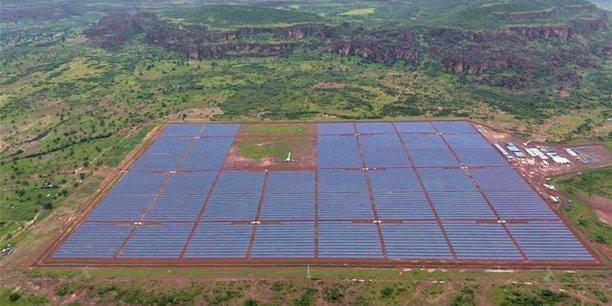 Sub-Saharan Africa is under-equipped with public services, but infrastructure projects involving private investment have declined since 2012. In order to attract new investors, international institutions are advocating " de-risked " public-private partnerships. But governments should compensate for the losses. This requires a development of the manufacturing industry for consumer goods that will provide jobs and purchasing power to populations that use public services. The budgets of some States could be balanced and the industries consuming energy or other infrastructures would participate considerably in the profitability of these new facilities.
Sub-Saharan Africa is under-equipped with public services, but infrastructure projects involving private investment have declined since 2012. In order to attract new investors, international institutions are advocating " de-risked " public-private partnerships. But governments should compensate for the losses. This requires a development of the manufacturing industry for consumer goods that will provide jobs and purchasing power to populations that use public services. The budgets of some States could be balanced and the industries consuming energy or other infrastructures would participate considerably in the profitability of these new facilities.
Public-Private Partnerships (PPPs) to finance public services and infrastructure
The World Bank is behind the "From Billions to Trillions" project unveiled in 2015 and renamed "Maximizing Finance for Development" in 2018. The financial institution advocates public-private partnerships (PPPs) to leverage the $150 billion in official development loans that multilateral development banks (MDBs) disburse each year to boost investment in public services in under-resourced countries.
According to the IMF, the amount of investment opportunities in public service development in sub-Saharan Africa is estimated to average "20 percent of GDP by the end of the decade" (annual GDP of about $2 trillion). At the France-Africa Summit, French President Emmanuel Macron presented a "new deal" deployed under the France-World Bank Initiative and promoted by the French Development Agency (AFD) to intensify the use of PPPs in Africa.
PPPs in infrastructure projects in sub-Saharan Africa are in free fall
As the IMF publication "How to attract private funds to finance Africa's development? "The limited role of private investors in Africa is also evident internationally: the continent attracts only 2% of global foreign direct investment flows." Many African countries want to enter into PPPs to install public services, but it is unclear whether the expected billions will flow in. According to the World Bank database, these investments are in free fall: "In sub-Saharan Africa, investments in infrastructure projects involving the private sector have fallen from $15 billion in 2012 to $5 billion in 2019.
Several criticisms of public-private partnerships dedicated to public services
The article entitled "The High Cost of “De-Risking” Infrastructure Finance " written on Project Syndicate in 2018 by Howard Mann, Senior Advisor on International Law at the International Institute for Sustainable Development, was already warning. While not doubting the World Bank's good intentions, he wrote of PPP financing: "Many developing countries are now headed straight for a disastrous scenario. In many cases, the risks assumed by governments extend over 20 to 30 years. Throughout this period, governments will face serious challenges in managing public expenditures, and will incur unforeseen costs associated with off-balance sheet commitments and excessive debt, raising the possibility of default on all credit commitments." In December 2020, in the article "Planting budgetary time bombs in Africa: the Macron Doctrine En Marche " published by the Groupe d'Etudes Géopolitiques (GEG) of the Ecole Nationale Supérieure (ENS), two economists, Daniela Gabor (author of the book The Wall Street Consensus, published in 2020) and Ndongo Samba Sylla, denounced the same issues but also the influence of financial markets.
The business model is at least as important as the way infrastructure is financed
These risks are real, and this will probably be true of certain public-private partnerships. But most governments cannot finance public works and often their respective economies, which are not considered bankable, do not allow them to issue bonds or obtain loans. PPPs could therefore be a solution, provided that economic development is also achieved. The type of financing is not the only parameter. The development model is at least as important. If informal employment, which accounts for 85 percent of the sub-Saharan population, remains the rule, revenues will increase little and tax collection will stagnate. But in the case of strong industrialization, the increase in purchasing power, the enrichment of the States and the use of industries would make it possible to make the equipment profitable and to honor the commitments signed.
Limited efficiency of public aid and investments without a global vision
Development aid policy in sub-Saharan Africa has been failing for 60 years. The region's industry is mainly based on the raw materials sector and the processing of agricultural products. Today, most consumer goods are imported from China. Also in an environment devoid of industrial ecosystems, haphazard investments are often futile. The G7 is promising $80 billion over five years to African companies, but whatever the amount, a strategy is essential. Instead of injecting capital here and there without overall coherence, it would be advisable, in order to avoid a loss of efficiency and return, to concentrate it upstream of the industrial sectors that create jobs. Thus, downstream, millions of other service jobs, indirect and induced, would naturally be created. By using such mechanisms, the need for financing and subsidies would be less colossal.
Industrialization remains the only solution to develop the economy of sub-Saharan Africa
30 million Africans enter the labor market each year, so priority must be given to industrial projects. Indeed, in developed countries, it is usually observed that each industrial job generates on average 3 or 4 other induced or indirect jobs, but in countries where everything has to be built, this figure could be multiplied by 2 or 3. This is why it would be relevant to first create the conditions for this industrialization by building the necessary infrastructure and simultaneously setting up sectoral business parks that could accommodate companies, often Western, that would share know-how and constitute, alongside new local companies, efficient ecosystems.
Combining infrastructure projects with an industrialization plan for sub-Saharan Africa
At the 2017 G20 in Hamburg, Chancellor Angela Merkel announced the Compact With Africa (CWA) program, which involved German companies and 12 African countries, including 8 in the sub-Saharan region. Four years later, the program has undoubtedly led to closer ties, but seems to have stalled. More ambitious, the "Africa Atlantic Axis program " (AAA) or "Plan for a regionalisation in the Europe Africa zone" is aimed at companies of all nationalities and would thus offer significant development opportunities to African companies and numerous jobs. It proposes an environmentally friendly industrialization of sub-Saharan Africa from production bases that would be integrated into global value chains (GVCs). They would first be established in countries on or near the Atlantic seaboard in order to facilitate trade with Europe and the United States before gradually expanding to the entire continent. On the other hand, the reasonable increase in production wages that our studies recommend in the framework of the "International Convention for a Global Minimum Wage" project would reduce poverty and thus allow a growing number of Africans to have access to new public services. By moving forward together, manufacturing projects and PPPs creating public services would reinforce each other and thus promote their sustainability. Published August 20, 2021 on la Tribune Afrique
Francis JOURNOT is a consultant and entrepreneur. He leads the program for the industrialization of sub-Saharan Africa or Plan for a regionalisation in the Europe Africa zone or Africa Atlantic Axis program and does economic research for the International Convention for a Global Minimum Wage

Industrialization of sub-Saharan Africa should be a priority topic for Africa-France and Africa-EU summits
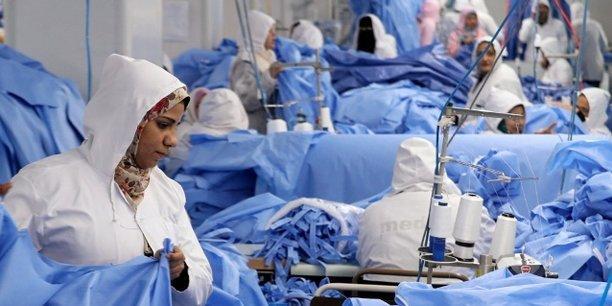 The Africa-France and Africa-EU summits will be held in 2021, but the proposals generally put forward are not well suited to the challenges. The transfer to Africa and the EU of part of the production of goods manufactured in China could solve problems.
The Africa-France and Africa-EU summits will be held in 2021, but the proposals generally put forward are not well suited to the challenges. The transfer to Africa and the EU of part of the production of goods manufactured in China could solve problems.
When the work of the summits runs counter to Africa's development
At a time when extreme poverty is wreaking more havoc than ever, a population that includes 250 million people suffering from malnutrition in an Africa that is virtually devoid of industry and emits very little CO2, could in the majority of cases consider French, European or international recommendations to be out of step and counterproductive.The digital transformation and the green transition, placed at the top of the list of priorities, must certainly be included but do not constitute complete solutions. It is to be feared that this off-the-ground focus will prevent rapid development in Africa and will not allow for a reduction in poverty.
Growth for Africa and its partners
It is now time to build an efficient paradigm. The installation of infrastructure and industrial tools by often Western companies, followed by the creation of a fabric of local businesses, would generate tens of millions of jobs in sub-Saharan Africa that are more lucrative than those in the informal sector. This would modernize Africa while offering the possibility for certain countries to escape the Chinese trap of African debt. New exchanges between African states and their partners, often French, European, but also American or sometimes Asian, including Japan, would promote the growth of each of them. A concerted industrial integration would best preserve the environment.
Many countries around the world must now understand that China will not be their growth driver
In most developed countries, domestic consumption and the stimulus plans implemented during the Covid-19 pandemic will not increase growth that has been reduced by deindustrialization and delocalization. It is true that some Western companies producing high value-added products (German cars or French luxury goods) are doing well, but China manufactures most of its own consumer goods and will not be the growth relay that Westerners have been waiting for in vain since the transfer of their technologies. Moreover, given their uncompetitive wage costs in the context of globalization, Western countries will not see massive reindustrialization and the jobs that have gone to China will rarely come back home. But as we have already written in Le Figaro, "Reducing our dependence on China is possible! ".
Economic outlook for a continent that could have 2.5 billion inhabitants by 2050
Countries that are often in a growth slump in the West must opt for solutions that will enable them to get out of the rut. On Europe's doorstep, a continent with a population of 1.3 billion today and 2.5 billion in 2050. The economic prospects are enormous and could generate activity in countries whose companies would participate in the industrialization of Africa. Mechanisms for pooling labor costs, which are often high in the West and lower in Africa, would recreate a balance and thus promote job creation on both continents.
Aligning the planets to develop Africa, contain China and ensure growth
China's responsibility for the spread of the Covid-19 pandemic, which caused more than 3 million deaths and devastated the global economy, has intensified the international community's distrust of China. Even if, for lack of other funding, some countries still request it, almost the entire world is aware of the need to curb the rise in power of an arrogant China that clearly displays its hegemonic and sometimes warlike ambitions. The Chinese infernal trap of the African debt, the capture of rare or agricultural lands and other wealth of the continent, threaten the independence of African countries. The EU, although the signing of the EU-China agreement in principle on investments may raise questions, claims to be less fooled now. US President Joe Biden is asserting his willingness to curb Chinese expansionism and is strengthening the Quadrilateral Security Dialogue (Quad) with India, Japan and Australia. And finally, we can hope that the Nigerian Ngozi Okonjo-Iweala, new director of the WTO since March 1, 2021, will be less lax than her predecessors towards China, which violates the rules.
A project that would meet the expectations of young people and could gradually replace ODA
At the end of 2020, in an article published on La Tribune Afrique entitled "Sub-Saharan Africa: capitalism could succeed where development aid has failed for 60 years", we proposed to gradually turn the page on official development assistance, the amount of which has exceeded $1,000 billion but has not reduced informal employment, which still concerns 85 to 89% of the active sub-Saharan population. Organized businesses would offer better-paid jobs. The reasonable increase in minimum production wages that we advocate in our studies on the International Convention for a Global Minimum Wage project would also contribute to a rise in the standard of living of the population and accelerate Africa's development. This could respond to the wish of many Africans who would like to make a better living from their work and break away from assistance that is certainly benevolent and often indispensable, but which reflects a negative image that they want to change. The process of industrial integration would increase the budgetary resources of the States, would contribute to the securing of territories and would reduce the migratory flows of the immense continent whose modernization would require the involvement and energy of its youth.
We can transfer a part of our industrial production from China to Africa
Only a production regionalization plan for Europe and Africa, concrete and structuring but also taking into account the new regional geo-economic and geopolitical parameters, could succeed. A financial involvement of each of the signatory countries that would like to strengthen their economic presence to increase their trade with Africa within the framework of the program, would be essential. Companies from these countries could often benefit from support to facilitate their establishment (recruitment and training, legal, fiscal and administrative assistance, financing, studies, etc.) which would also contribute to the attractiveness of sub-Saharan Africa. We will be able to build global industrial schemes within which they can project themselves and which will convince them to move part of their production. We will have to look for sectoral complementarity to create efficient and coherent ecosystems reinforced by blockchains. This proximity will allow to reduce the transport of materials or parts within global value chains (GVC).
Targeted program to be efficient and easily financed
The cost of building industrial bases, including road, rail, airport or port access, energy supply, telecommunications networks, road works, waste management, but also security devices, housing, schools, medical centers and essential shops, would be eligible for financing by major international institutions and donor countries within the framework of Africa's development. The amount spent for each industrial site that would be built every 2 or 3 years would be around 3/5 billion euros.
A purpose that could unite
Outside a protective framework such as the one recommended, industrialization in Africa would cause irreversible environmental damage. It would therefore be advisable to avoid the disorderly construction of a multitude of industrial zones without overall coherence. In contrast to international or local economic policies or proposals, which are often hollow and without a future, but which have been sclerotic for 60 years in the development of sub-Saharan Africa, the Africa Atlantic Axis program could, on the contrary, be implemented soon, if the populations of the African countries most concerned so wish. The international financial institutions could only join this project of progress for Africa. Many Western companies that have been thinking of leaving China for several years would agree to invest in this great project.
Indispensable collaboration between the two continents
Pan-Africanism is often mentioned, but the time for industrialization is very long. Let us remember that it is the transfer of Western technologies that has allowed China to develop considerably in about twenty years. African populations, who are struggling to feed themselves today, cannot wait another half century or more. It is therefore necessary to be pragmatic. It is rather unlikely that Africa will be able to prosper without the help of Europe, which should itself rely on Africa to generate growth again.
An ethical model for a reasoned industrialization
More local production and less transportation of goods, the application in Africa of the World Minimum Wage, which would allow parents to send their children to school, more education and higher living standards that would eventually lead to a moderation of the birth rate and a reduction in global greenhouse gas emissions, could be some of the benefits of the model.
Francis JOURNOT is a consultant and entrepreneur. He leads the program for the industrialization of sub-Saharan Africa or Plan for a regionalisation in the Europe Africa zone or Africa Atlantic Axis program and does economic research for the International Convention for a Global Minimum Wage
Documentation
https://www.vie-publique.fr/en-bref/278145-ue-afrique-quel-partenariat-pour-2021
https://www.europarl.europa.eu/doceo/document/A-9-2021-0017_FR.html
 Sub-Saharan Africa: Capitalism could succeed where development aid has failed for 60 years
Sub-Saharan Africa: Capitalism could succeed where development aid has failed for 60 years
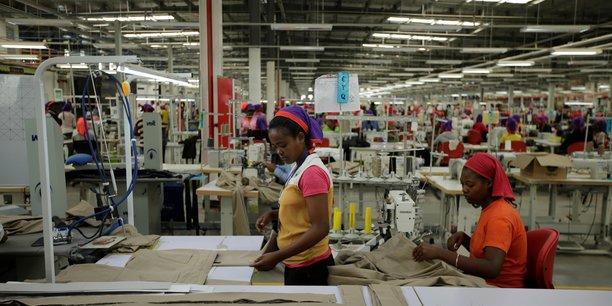 Tribune by Francis Journot published november 07, 2020. In 2019, Africa's official development assistance (ODA) reached USD 37 billion, of which USD 31 billion was allocated to the sub-Saharan zone, but poverty could remain. According to a World Bank study in 2018, this part of Africa concentrated a quarter of the world's extreme poverty in 1990, half in 2015 and projections indicate 90% for 2030. According to the latest report "Africa's Pulse" unveiled on October 7, 2020, the situation could worsen. "The pandemic could push 40 million Africans into extreme poverty, wiping out at least five years of progress in the fight against poverty. ». The president of the African Development Bank (ADB) Akinwumi Adesina is not more optimistic "Africa has lost more than a decade of the gains made in economic growth. Decrease in national budgets, weakening of political regimes and strengthening of Islamic terrorism, flight to the EU of African youth essential for the development of the continent, could be among the consequences.
Tribune by Francis Journot published november 07, 2020. In 2019, Africa's official development assistance (ODA) reached USD 37 billion, of which USD 31 billion was allocated to the sub-Saharan zone, but poverty could remain. According to a World Bank study in 2018, this part of Africa concentrated a quarter of the world's extreme poverty in 1990, half in 2015 and projections indicate 90% for 2030. According to the latest report "Africa's Pulse" unveiled on October 7, 2020, the situation could worsen. "The pandemic could push 40 million Africans into extreme poverty, wiping out at least five years of progress in the fight against poverty. ». The president of the African Development Bank (ADB) Akinwumi Adesina is not more optimistic "Africa has lost more than a decade of the gains made in economic growth. Decrease in national budgets, weakening of political regimes and strengthening of Islamic terrorism, flight to the EU of African youth essential for the development of the continent, could be among the consequences.
The debate on capitalism and development aid
As early as the early 1960s, the agronomist René Dumont doubted the effectiveness of ODA, and economists such as Jean-François Gabas in 1988 and William Easterly in 2001 also questioned its efficiency. professor at Harvard during the 1980s and 1990s, Jeffrey Sachs would have taught that "Long-term development would only be possible with the participation of the private sector and market economy solutions". His former student, economist Dambisa Moyo, wrote in his 2009 New York Times bestseller "Fatal Aid: The ravages of useless aid and new solutions for Africa": "We now have more than 300 years of evidence of what works to increase growth, reduce poverty and suffering. For example, we know that countries that finance development and create jobs through trade and the encouragement of foreign investment prosper. "Heads of State share some of the analysis, including former Senegalese President Abdoulaye Wade, who said in 2002: "The countries that have developed have all embraced the free market. Nevertheless, in his book published in 2005 "The End of Poverty", Professor Emeritus Jeffrey Sachs, now adviser to UN Secretary General Antonio Guterres, advocated the doubling of ODA, whose inefficiency his former student Dambisa Moyo precisely denounced. The subject is complex and no one is entirely right or wrong. The debate that promises to last several decades does not seem to be able to remedy Africa's stagnation. It would be risky to reduce the amount of ODA in Sub-Saharan Africa at a time when the Covid-19 pandemic is aggravating extreme poverty, but a gradual transition to another development policy could prove relevant.
The informal economy alone will never be able to generate sufficient growth.
According to the Zambian economist Dambisa Moyo, the amount devoted to ODA in Africa since 1960 exceeds USD 1,000 billion. But the local actions of NGOs are showing their limits and the new ODA policy advocated by the IMF since 2017 in favor of informal employment could prove insufficient in terms of reducing inequalities and growth. The heterogeneity of the informal economy in Sub-Saharan Africa, which generates 20 to 65 percent of the states' GDP, should be taken into consideration, but a more global strategy should also be implemented in order to win the race against impoverishment and humanitarian disaster that threaten. After a 2.4 percent increase in sub-Saharan Africa's GDP in 2019, the IMF forecasts a decline of about 3.2 percent in this African region, which already has the lowest per capita growth in the world. A transformation of the sub-Saharan economy that would provide more and often better-paying jobs than those in the informal sector, which currently account for more than 80 percent of employment, would be imperative to provide real economic opportunities. In order to absorb unemployment, which affects 40 to 45% of 15 to 24 year olds in a context of galloping sub-Saharan demographics, and to reduce extreme poverty (less than $1.90 per day), which affects more than 150 million sub-Saharan workers out of 450, it would be essential that the growth of the very low sub-Saharan GDP of USD 1755 billion (2019), increase considerably. A necessary growth rate of 7 percent to significantly reduce poverty has often been evoked in the past years, but given the aggravating factors and alarming parameters, the minimum rate to be achieved should not be less than 8 or 9 percent for many years.
Jobs left in China will not come back to the West
China's development is a textbook case. The relocation of production of Western consumer goods over the last 30 years is at the root of the Chinese economic miracle and its growth rates for twenty years from the early 1990s, rarely below 9% and often above 12%, 13 or 14%. These jobs will obviously not come back to Western countries with higher wages, but neither should Africa be transformed into the new workshop of the world. It is more simply a matter of initiating the industrial and economic evolution that will promote its march towards autonomy and progress.
So how do we get the sub-Saharan economy off the ground?
The willingness of many Heads of State to modernize and industrialize their countries is certainly an essential prerequisite, but the lack of financing and infrastructure, the long time it takes to industrialize from insufficient or non-existent productive or commercial bases, and the need for responsiveness within global value chains (GVCs) are all difficulties to be overcome. The funds that would be borrowed would reach peaks and the over-indebtedness of states would accentuate poverty. A regionalization plan for production in the Europe-Africa zone that would advocate a more efficient path could prove indispensable. In the context of globalization, Africa can only succeed by working more with the large consumer markets whose companies would set up on its soil the manufacture of products or VCM stages of a consumer goods manufacturing industry that provides employment and wealth but which is now mainly located in China. The expansion of this arrogant dictatorship, which threatens many countries, is dangerous. It is urgent to restore certain balances but also to create new ones in order to preserve peace and democracy in the world as suggested in the article "Reducing our dependence on China is possible", published on LE FIGARO.
The beginning of a period of "Glorious Thirty" in Africa?
It would be utopian to aim at a simultaneous industrialization of several dozen African countries whose necessary capital could not be found (for example, the electrification plan for Africa carried by the former French minister Jean Louis Borloo, who demanded funding of 250/300 billion euros, was finally abandoned). A first plan of about ten billion euros, spread over 3/5 years but initially concentrated on a determined perimeter would probably prove to be more pragmatic. This development program for African industry could be initiated from countries located on the Atlantic coast or close to it. This geographical location would also facilitate trade with the two major consumer markets that are the EU and the USA. The modern and secure business parks, which would be financed by international institutions and countries wishing to contribute, would host the production tools of European, American or non-Western brands and often local SMEs. For example, several objective criteria could motivate the establishment in the Democratic Republic of Congo (DRC) of an industrial cluster dedicated to the manufacture of electronic components and the assembly of digital products. Industrial integration processes could eventually produce complete and efficient ecosystems. Industrialization would be gradual but many entrepreneurs and unemployed from other states would quickly benefit from opportunities within a dense network of companies. Over the years, prosperity would spread and benefit the greatest number of people. This paradigm shift could thus mark the beginning of a period of "Glorious Thirty" in Africa.
Francis JOURNOT is a consultant and entrepreneur. He leads the program for the industrialization of sub-Saharan Africa or Plan for a regionalisation in the Europe Africa zone or Africa Atlantic Axis program and does economic research for the International Convention for a Global Minimum Wage
![]() Reducing our dependency to China, it is possible!
Reducing our dependency to China, it is possible!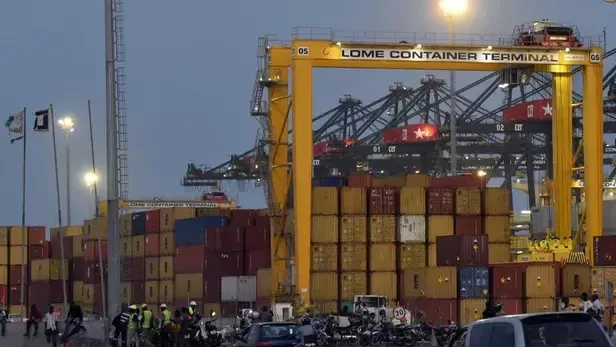
Le Figaro/Tribune by Francis Journot, published on June 08, 2020 - By relying more on its regional market, Europe is able to significantly reduce its dependence on Chinese industry, says Francis Journot.
Francis JOURNOT is a consultant and entrepreneur. He leads the program for the industrialization of sub-Saharan Africa or Plan for a regionalisation in the Europe Africa zone or Africa Atlantic Axis program and does economic research for the International Convention for a Global Minimum Wage
Few risks of shortages or sharp price increases
In the light of a crisis that reminds us of the fragility of our existence and a confinement that has made us aware that we can deprive ourselves of over-consumption for two months, it seems certain that we would be able to survive a period of transfer of Chinese industry. Some products that are not always indispensable could become scarce, but let's be reassured, most imports would continue to pour in because companies and their shareholders do not appreciate consumers deserting the stores. Every search for new subcontractors would result in a multitude of competitive service offers around the world, and hundreds of thousands of engineers would want to participate in the development of production processes. As for the vital area of food, European countries have little dependence on the rest of the world. So it is doubtful that we should fear real shortages or a significant increase in the prices of our consumer goods, but we could, on the other hand, consume less but better and rejoice in relocations that would, over the months and years, lift millions of Europeans out of unemployment and poverty.
A new European paradigm based on a broader regionalization of production and trade that includes more Africa.
Rising wages and manufacturing costs in emerging or developing countries accompanied by a drop in direct investments, technology theft and counterfeiting, the environmental cost of transport and consumer demand for more local products, we have been witnessing for several years now to phenomena which indicate or provoke a decline in globalization. Although not yet evident, the Covid-19 crisis and the rise in unemployment could accentuate a trend towards regionalization of trade. Europe could initiate a new European paradigm of regionalization of value or production chains within the framework of the EU or a less political economic community if it disappears. But relocating activities to France would not be easy. One would have to exempt oneself from sclerosing ideologies with their elitist postulate of selecting only the so-called strategic sectors. This has justified the delocalization of other activities and has proved to be erroneous. Manufacturing jobs generated many indirect and induced jobs whose contributions and taxes better financed public spending, moderated the cost of labor, allowed maintaining a better level of technical training that benefited all sectors, including the most strategic, and thus participated in a virtuous economic circle.
The new conception of trade proposed here obviously differs from the unrealistic recommendations of autarky and the end of globalization made by the former Minister of Economy Arnaud Montebourg. For beyond the slogan "made in France" and the theme of reindustrialization regularly exploited for political purposes by personalities in search of publicity and voters but often from government parties whose economic policies have favored deindustrialization, there remains the reality of the cost of labor but also the pitfalls of a highly politicized dogmatic trade unionism and the innumerable norms that discourage industrialists. The mechanisms of mutualization and equalization would be likely to promote the creation of ecosystems and jobs, but a relaxation of European or national treaties and regulations that make the management of French companies more cumbersome would also be desirable.
There are many obstacles to a massive return of jobs in France and sometimes even in Europe.
With a rich market of 500 million consumers, the growth potential in Europe is enormous. The lower-cost European countries would experience full employment, but in other countries we could come up against a mismatch in the supply of industrial jobs for job seekers who are not attracted by these opportunities. In France, skilled labor has virtually disappeared in many industrial sectors, but also in many European countries. The cost of training for each job is often around 20/50 K€, mostly borne by the company, but this does not guarantee that candidates will be able to carry out work for a long time that is often considered to be arduous. Today, small and medium-sized companies in the industry are unable to train more than one or two jobseekers per year. It is doubtful whether European industry will be able to recruit all the necessary staff. Moreover, the level of exports could erode after a few years. China will further reduce imports to cope with unemployment that could weaken power and the USA is showing a strong willingness to relocate since 2017. Western companies established on its soil have brought it the technologies that will enable it to meet all the needs of its consumers. Also, new non-European prospects would be harder to find and each European country would try to pull its own cover in order to gain market share within Europe, as is already often the case today. The luxury goods sector would continue to do well, but there are fears that the number of orders would decline in leading-edge sectors facing growing competition, including China. One could hope for the emergence of European leaders in new fields, but this would take time. Nevertheless, France and the countries of Europe would welcome the reduction in imports and a return to prosperity in many sectors. But after an upturn in activity and a drop in unemployment, the economy could turn in circles and return to low growth and employment rates.
With sluggish growth and unemployment in the EU, poverty and galloping demographics on the neighbouring continent, we are facing many challenges
So we are confronted with these challenges but also many others for which we will have to try to find solutions sooner or later. Among these, the phenomenon of the galloping demography of a continent less than 150 kilometers from the first European coasts, which could have two and a half billion inhabitants in 2050. An important part of them would try to flee misery and hunger by migrating to a weakened Europe, hardly able to offer better living conditions. However, the foundations of our civilization, political and economic, cultural and religious, would not survive. The social and security chaos that could set in could precede or surpass the climate collapse promised by environmentalists who are committed to an ideology of degrowth to which our African friends who are struggling to feed themselves may not fully adhere. So perhaps, in order to solve our growth problems in the years to come but also contribute to poverty reduction in a nearby continent that is experiencing exponential demography, we could reflect on a model that broadens our cooperation with it.
China perverts rather than enriches the African continent
Today, China intends to get its hands on this enormous reservoir of raw materials. But it perverts more than it enriches this continent by flooding it with low-cost products from Asia and thus makes craftsmen or small businesses that used to make local products more precarious. The factories created belonged to companies dependent on Beijing, whose Chinese foremen ran some of the worst paid workers in the world. These low wage levels thus allow China to flood Western countries with low-end products without benefiting the African people in terms of social progress. But this rampant colonization, which is increasingly badly experienced, arouses bitterness.
Eventually, more industrial autonomy
It is essential for Africa to equip itself with the means to ensure the subsistence of its population while taking care to preserve its fauna and flora. Many engineers wishing to see Africa and the Maghreb grow would enthusiastically welcome this transcontinental project of creating joint ventures within sectoral clusters. These new production tools, which would first of all be integrated into European supply chains, would promote the economic development of the countries and would facilitate their access to greater industrial autonomy. The cost of setting up the plants would be covered by the brands or brands to which the products are destined. The companies, organized in collectives, could thus benefit from a mutualization of costs but also from a modularization of production in certain sectors. These activities would provide new local opportunities for young generations currently tempted by immigration to Europe. Funds considered inefficient among those currently allocated to the development and support of countries could be redirected towards the construction of the necessary infrastructures, which would thus benefit everyone, since it seems more relevant to invest upstream by creating jobs and generating an increase in local living standards rather than continually acting downstream.
Indeed, the assistance, although benevolent and often indispensable, nevertheless conveys an image that this continent wishes to erase in order to change the perception of the world and move forward. Profitable and growing groupings of companies would certainly attract global capital that would then abound with new projects and accompany the expansion of the model across the continent to perhaps make it a new Eldorado.
One can think that a rise in the standard of living in Africa would encourage the education of children, the emancipation of women and eventually a reduction in the birth rate.
This prolific partnership for Africa would also be prolific for Europeh witch needs new perspectives. The implementation of the project would require the assistance of many companies with expertise in industrial engineering, energy, construction, digital, training in the many sectors, human resources etc. The number of positions straddling the two continents would be considerable. France has retained privileged links with most countries and would have an important card to play. Subsequently, the African continent could eventually constitute for Europe a new growth relay that would fill a slump in Chinese demand, especially since it has as many inhabitants as China. Their purchasing power is not comparable, but let us remember that at the dawn of this millennium, China's GDP per capita was similar to that of most African countries that it has now undertaken to colonize. It is difficult to grasp the full dimension of such a regionalization project as the implications and possibilities are multiple in terms of employment and wealth creation. Demographic forecasts predict a doubling of the African population within thirty years, but one can think that an increase in the standard of living would encourage the education of children, the emancipation of women and, in the long run, a reduction in the birth rate. A reasonable and evolutionary increase in monthly production wages, which today usually vary between 35 and 200 euros, could accelerate this sociological change.
It would therefore be possible to build an alternative to Chinese dependence. Why settle for maintaining our industries in China, favouring a hegemony that will hinder our freedoms and will certainly expose us sooner or later to the risk of a world war, when a regionalization of trade would give us the opportunity to consume less but better without, given the international competition, making prices soar and would, moreover, offer us economic dynamism and the creation of millions of jobs at a time when unemployment is ravaging Europe while allowing the neighbouring continent to achieve greater social progress.
![]() Should China be excluded from the WTO and the UN Security Council?
Should China be excluded from the WTO and the UN Security Council?
Le Figaro/ Tribune by Francis Journot - The Covid-19 made manifest China's economic and military progress on the international stage. But for the entrepreneur Francis Journot, as long as Beijing does not respect the rules laid down by international institutions, it should no longer be a member.
WTO, WHO or UN Security Council, China has infiltrated international institutions but has freed itself from the rules that govern them. The arrogant dictatorship, previously more adept at "soft power", now intends to stand up to the world and the balance of power seems to have become the cardinal principle of its policy. One can therefore worry about its economic influence and growing military power. In the light of a revealing health and diplomatic crisis, the already present fear of a hostile and belligerent China that would dominate the world and sweep away the democracies is now more acutely felt. Therefore, while it is still possible, it is advisable to temper its imperialist ambitions.
Chinese deception and Western angelism
China, member of the World Trade Organization since 2001, is no longer a developing country but still enjoys the benefits of this status. Nevertheless, it remains a command economy as well as a state capitalism and is not, strictly speaking, a market economy. It would have been more relevant to end the experiment in 2016 at the end of a transitional period during which it has plundered Western technologies with impunity and too often violated WTO rules to the detriment of its competition, which could hardly compete with companies and productions frequently subsidized by an interventionist Chinese State.
Moreover, the Chinese dictatorship sits among the 5 permanent members of the UN Security Council and therefore has a right of veto. This privilege would allow it to prevent possible sanctions against it but also to block, if necessary, a summons of Xi Jinping before the International Criminal Court within the framework of the management of the Covis-19 crisis. The example of China's stranglehold on the WHO should alert us because its influence allowed it to delay the announcement of the pandemic. The presence and power within these institutions, of a dictatorship that claims an objective of economic and military domination over the world, are undoubtedly unnatural and dangerous.
The Chinese Communist Party is certainly the greatest threat to freedom, democracy and peace of mankind for 80 years.
His refusal to take responsibility for a crisis that has killed hundreds of thousands of people and his contempt for humanity can make us fear the worst. Drunk with power, Xi Jinping certainly believes that military intimidation could allow him to completely dominate a stupid and corrupt West that has traded its technology and the supremacy of the world economy for pieces of cloth and plastic. Some leaders seem to have pledged allegiance to him, but this strategy is not without risks and could eventually lead the rather peaceful Chinese people and the world to a third world war. Initially confined to a defensive function, the army of the People's Republic of China has become a force of world conquest whose rise in power leaves little room for doubt as to its geostrategic aims. The establishment of a naval military base in Djibouti on the Horn of Africa and a fortress overlooking the Indian Ocean (Source: Forbes) that can accommodate several large warships and perhaps aircraft carriers, we confirm. The strength should reach 10,000 men in 2026. The Chinese dictatorship is not unaware that the conquest of the African continent and the economic invasion across Europe, poetically christened the "Silk Roads", could lead to frequent uprisings of underpaid and sometimes mistreated workers who could reject Chinese domination in Africa, or of European populations fooled and impoverished. This is why China would often have to resort to threats and repression, but no one could foresee or stop the escalation of violence.
China has the second largest army behind the US, but at the rate at which its military-industrial complex, the largest in the world in terms of number of employees, is growing, it could boast the title of the world's leading military naval power in a decade or two. Two aircraft carriers and others under construction, an additional submarine every quarter and a destroyer every month join a fleet capable of operating on all seas, which now includes nearly 700 combat ships.
In an article published on May 12, 2020 by the Hong Kong South China Morning Post newspaper "China launches its last submarine nuclear missile and receives a scientific prize", Journalist Liu Zhen comments on the testing of JL3 nuclear missiles which have a range of 12,000 km and could reach the USA from the Chinese coast. They will equip new generation submarines from 2025. Chinese military observers said the missile tests were a response to U.S. President Donald Trump's deterrence strategy aimed at China. But no one can believe that China is building nuclear missiles out of enmity with the U.S. president. The tests, which received some of China's most prestigious scientific awards, are a further demonstration of strength to the world.
The budget of the Chinese army of 250 billion dollars in 2018 (source SIPRI), given its constant increase (7.5% in 2020) should be about half of that of the USA in the coming years. If we consider that this Chinese military budget, which benefits from a lower cost labor force, allows the financing of the manufacture of a much larger volume of equipment than the USA, it becomes clear that such an armament effort has rarely or never been seen in peacetime, especially since inequalities are great and unemployment already affected 22% of the Chinese active population before the Covid epidemic19. This unbridled preparation for a mobilization of the army inevitably reminds us of the period of Nazi Germany's rearmament from 1933 onwards, which preceded and framed the Second World War.
A giant with feet of clay
This country of one and a half billion inhabitants has benefited from the growth provided by Westerners and several hundred million Chinese have thus been able to escape from poverty. Objectivity requires us to recognize that Western companies and consumers have benefited from lower production costs, but it must be admitted that they have paid the high price of unfair competition with deindustrialization, unemployment and precariousness, desertification and the decline of public services etc...
But the two main consumer markets still hold the keys to economic power over China. They are responsible for this situation and it is up to them to take the decisions that can curb the wild ambitions of an ungrateful and violent communist dictatorship led by a megalomaniacal president for life whose single party allows him to remain at the top probably against the will of his people. An international challenge to the legitimacy of Xi Jinping and his policies could weaken the authority of the Chinese Communist Party.
The US and the EU must demand that China compensate for the damage it has suffered, but also demand that China be removed from the WTO and the UN Security Council.
Although concerned about the interests of Germany, the European country most dependent on China with a trade volume of 200 billion in 2019, the EU must also distinguish between diplomacy and submission. It cannot ignore the danger of Chinese expansionism and turn the USA and China against each other, arguing that this is a new cold war between two great powers that hardly concerns it. For, let there be no mistake, the Chinese giant would not spare us afterwards and everyone would then remember the cowardice and lack of foresight of the EU.
But the beginnings of a latent war with thinly veiled threats against the EU and its member states are already there, and this should force us to open our eyes. For example, Beijing demanded that the EU acknowledge Chinese responsibility in the report on the management of the Covid-19 and recently tried to prevent a contract for the modernization of Taiwan's frigates signed with a French company: "We once again urge France to respect the principle of one China and to cancel the project to sell arms to Taiwan to avoid damaging Sino-French relations".
It would be right for China to participate in the financing of global economic reconstruction. Therefore, after the EU's failure at the height of the crisis, the least that European Commission President Ursula Von der Leyen can do now for the people of the 27 member countries, who are suffering few hundred thousand deaths and a significant loss of income, would be, together with US President Donald Trump, to demand that China compensate all countries for the damage suffered.
On the other hand, it is undeniable that an eviction of China from the WTO and the UN Security Council could moderate this power out of control and thus preserve the world for a long time from the danger of a Chinese military offensive. It would therefore be indispensable that a historic agreement between the President of the European Commission and the President of the United States be established as soon as possible in order to demand its implementation from both international organizations. During an interview at the end of April 2020 with Laure Mandeville, a journalist specializing in the United States for Le Figaro, the American Assistant Secretary of State for European Affairs Philip T. Reeker declared: "Faced with China, we are going to unite". Here is now the opportunity.
So certainly, the European Union's inclination for extreme globalization and free trade may raise doubts about such a change in policy, but if we think that the populations will not accept, on top of growing unemployment, the austerity it plans to impose on them to pay for the economic catastrophe caused by China, the Commission should understand that it will have to change its ideological software before it has to face an anger that would provoke the end of the EU or face a war that its permissive policy towards China for the last 20 years will have favoured and for which it would be highly responsible.
Francis JOURNOT is a consultant and entrepreneur. He leads the program for the industrialization of sub-Saharan Africa or Plan for a regionalisation in the Europe Africa zone or Africa Atlantic Axis program and does economic research for the International Convention for a Global Minimum Wage
Copy and reproduction prohibited - Copyright © 2020 - 2023 Francis Journot - All rights reserved




